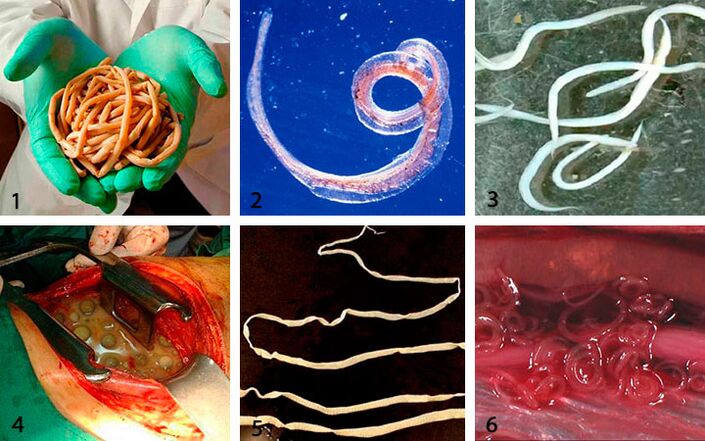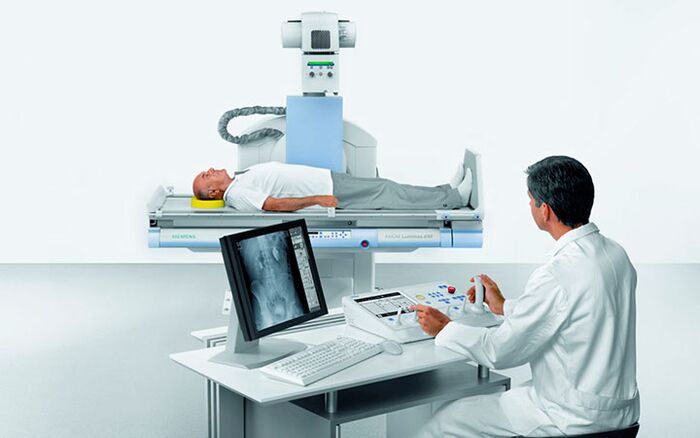
What are the signs of worms in humans, and are the symptoms of worm disease lasting or temporary?Is it possible to identify the disease in the early stages of development and how to do it without resorting to a doctor?
There are many specific symptoms that directly indicate a dangerous "neighbor" in the body.
The main signs of worm disease
There are many symptoms of worms in adults.There are several signs of worms in the body.
List of specific features:
- Parasites in the human body can cause intestinal pain.
- There is a problem with the chair;
- bruxism (characteristic rattle of teeth that occur at night);
- A person loses weight (weight loss is due to the fact that parasites come at the expense of owners and deprives of necessary vitamins and microelements);
- Stomach irritation (colitis, a constant irritating gut syndrome);
- Sleep disorders occur (the patient may be disturbed by itching in the anal area, which occurs due to the release of parasites that lay eggs).
The symptoms of these infections are specific in nature, that is, they can directly indicate the presence of parasites in the body.
But nonspecific parasitic symptoms exist, including:
- Cough, respiratory problems, inflammatory processes in respiratory areas.
- Headache, blood pressure problems in the bloodstream (the level of prevalence may be high, or may suddenly decrease).
- Neural overvoltage (mental state unstable).
- Local type of allergic reaction.
- Granules (larvae grow with connective tissue, forming smaller tumors).
- Tumor disease (developed in the context of decreased immune system activity).
- Decreased immunity (the development of autoimmune diseases, frequent acute respiratory virus infections and acute respiratory infections).
- Inflammation of kidney or pyelonephritis (occurring in the context of parasitic diseases).
- Inflammation of the gallbladder (cholecystitis and obstruction of the duct).
The disease can manifest differently, but indirectly suggests the presence of worms.
The signs of infection depend on the affected organ
The first sign of human parasites:

- If the liver is affected.There are signs of cholelithiasis and can be blocked with larvae or adult worms.There are yellow spots under the eyes and the skin changes the shadow.After eating, there was an unpleasant smell, which was painful, and the pain appeared in the lower right corner.
- If the intestine is affected.The first sign of poisoning is anemia.Weight loss and gains dramatically.Appears in the context of worm invasion, weakness, fatigue and other symptoms of exhaustion.The appetite will weaken and nausea will appear after eating.There is pain in the intestines and pain in the abdomen after eating.
- If the kidneys are affected.Pyelonephritis is characterized by the outflow of urine, inflammation and modification of the structure of the kidneys.Pain occurs on the lower back and there is pain syndrome during urination.
- If the lungs are affected.In the tissues of the lungs and bronchials, there are ascaride larvae, and the infected person has a persistent, very unpleasant cough.It's hard to deal with it with the help of drugs.After convulsions, phlegm appears.
In the early stages of development, it is difficult to identify the disease.Parasites in the human body have not settled yet.
Symptoms depend on the type of parasite
Read more about the symptoms of human worms:
- Askarids.The infection spreads in different ways, but in the gut, adult females emit up to 25,000 eggs, which are covered in special shells, containing 3 layers.The eggs are in the intestines, and the temperature conditions are observed, and the eggs become larvae and are sent to the body to "move" as the blood flows.Once it enters the lungs, the larvae can cause coughing.With the twitching, she went to the intestines again, she continued to develop, and after a while she became a mature person.The life cycle of ascarides is 12 months.During this year, individuals are in the intestines, and eggs that lay eggs carry feces.
- Vrashv.Due to the structural characteristics, this worm can violate the integrity of the intestinal membrane.He feeds on human blood, and his presence in the intestines will have various consequences.As the worm is in the large intestine, its function (nutrition of the host blood) leads to rehabilitation infection, thus appendicitis occurs.
- Speaker.These are parasites, belonging to the gut nematodes, and they usually surprise children.If no timely measures are taken, there is a high risk of gastrointestinal disease.With repeated infections, the risk of recurrence of the disease increases.
- echinococcus.It exists in several forms, and the cyst can infect the fabric and set certain cavity.But the parasite itself lives in the intestines, and when it comes into contact with animals (cats, dogs, domestic pigs), it can also be infected and can also spread from humans to humans.
- Wide tape.It enters the human body in the form of larvae and becomes infected after eating fish, which has not been properly heat-treated.The larvae enter the small intestine and live and develop for a long time, and adults can grow several meters.
- Speaker.This enteric nematode usually affects children.Causes bowel disease.Remission may occur if the probability of reinfection may be minimized in the absence of treatment.

Changes are continuously observed, the body cannot recover, and it is difficult to cope with the loss of blood and nutrition.
Infection methods and possible consequences
What are the dangers of a human worm:
- leads to weakening of immune system activity (in the context of insufficient immunity, health problems arise);
- Chronic natural anemia occurs (worms feed on the blood and absorb nutrients and vitamins);
- In the context of infection, leukocytosis develops (the level of leukocytosis in the blood increases as the body is actively trying to cope with parasites with the help of leukocytosis);
- If a large number of worms live in the intestine, they may cause their blockage.
- cholecystitis (which occurs if the bile tributaries are blocked by worms);
- Pneumonia (In the migration phase, larvae may fall into the lungs and cause inflammation).

If treatment of the disease is wrongly selected, if it is performed inappropriately or completely absent, various diseases, including inflammatory and autoimmune properties, can occur.
How worms spread:
- You can get infected when contacting someone with a helmsman.
- Airborne droplets (sucking eggs).
- Through water and food.
- Through the soil.
Being infected with worms is not difficult enough to regularly ignore personal hygiene rules in order for some problem of nature to occur.
Diagnostic method
A person's worm diagnosis occurs at several stages:
- Donate blood for analysis;
- Take feces for analysis;
- Perform radiography.
Blood tests were performed to detect the increase in white blood cells and eosinophils in the blood.
Analysis of the worm's feces is effective only if a person lives in a person's body and is in the migration stage (i.e., she has laid eggs), which the doctor detects during the examination and in the feces.
X-Ray has its own characteristics and its behavior is consistent with that of the doctor.Based on the results of the study, necessary information about the presence of parasites in the respiratory organs and the gastrointestinal tract can be obtained.

What are the characteristics of parasites, the test results are considered:
- Leukocytes (increased leukocyte count in the body).
- Eosinophils (eosinophils in amount of blood, blood in blood cells increases).
- The appearance of worms in feces.
The reasons for worms appear are different, and according to statistics, about 85% of people on Earth are infected with worms.The reason is that treatment of helminthiasis has its own characteristics, which occur when various drugs are used and in some cases are not efficient.
How to find out if there are parasites in the body:
- When there are characteristic symptoms, it is worth consulting a doctor.
- Take the necessary tests;
- Get the results.
The signs of a person appearing worms are not as clear as they can be seen at first glance.Therefore, if something goes wrong, you should not be attracted to your doctor.

























